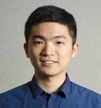Faculty Candidate Seminar
Cross-Layering in Future Wireless Networks: From Compact Full-duplex Radios to City-Scale Experimentation
This event is free and open to the publicAdd to Google Calendar

Abstract
Future wireless networks will feature the technology “sweet spot” of high bandwidth, low latency, and powerful edge computing, thereby enabling a broad new class of applications such as augmented reality, autonomous vehicles, and smart cities. Realizing this vision requires theoretical and experimental research efforts focusing on emerging communication technologies (e.g., full-duplex wireless, beamforming, millimeter-wave, and fiber-optics) and their interactions with the higher layers in the network stack.
Full-duplex wireless – simultaneous transmission and reception at the same frequency – is one of the emerging technologies that has the potential to increase spectrum efficiency and reduce communication latency. In this talk, I will first describe our design and optimization of compact single-antenna full-duplex radios which are suitable for hand-held devices. Our customized full-duplex radios achieve wideband self-interference cancellation using the technique of frequency-domain equalization (FDE), and are experimentally evaluated at the node-, link-, and network-level. I will then present a novel approach to enable full-duplex operation in multi-antenna systems by repurposing beamforming degrees of freedom to achieve both wideband self-interference cancellation and improved data rate gain. I will also review our results on throughput-optimal distributed scheduling in heterogeneous networks with both half- and full-duplex users. Finally, I will briefly describe the design of the NSF PAWR COSMOS advanced wireless testbed and its ongoing deployment in a ~1 sq. mile area in West Harlem, New York City. The testbed’s key technological components include programmable millimeter-wave radios, optical x-haul, and edge cloud. I will conclude by describing the first-of-their-kind experiments on open-access full-duplex wireless and converged optical-wireless x-haul networking that we conducted in the COSMOS testbed.
Bio
Tingjun Chen is currently a Ph.D. student in the Department of Electrical Engineering at Columbia University. He received the M.S. degree in Electrical Engineering from Columbia University in 2015, and the B.Eng. degree in Electronic Engineering from Tsinghua University in 2014. His research interests are in the area of networking and communications with a specific focus on future wireless networks and Internet-of-Things (IoT) systems. In particular, he is interested in emerging communication technologies and their interactions with the higher layers as well as in cross-layer optimization and performance evaluation of networked systems. He is the student co-lead of the inter-disciplinary Columbia FlexICoN project and is highly involved in the design and deployment of the city-scale NSF PAWR COSMOS advanced wireless testbed. He received a number of awards including the Facebook Fellowship in Networking and Connectivity, the Wei Family Private Foundation Fellowship, the Columbia Engineering Oscar and Verna Byron Fellowship, and the Columbia University Electrical Engineering Armstrong Memorial Award and Jacob Millman Award. He also received the ACM CoNEXT 2016 Best Paper Award and his paper was an ACM MobiHoc 2019 Best Paper Finalist.
 MENU
MENU 
